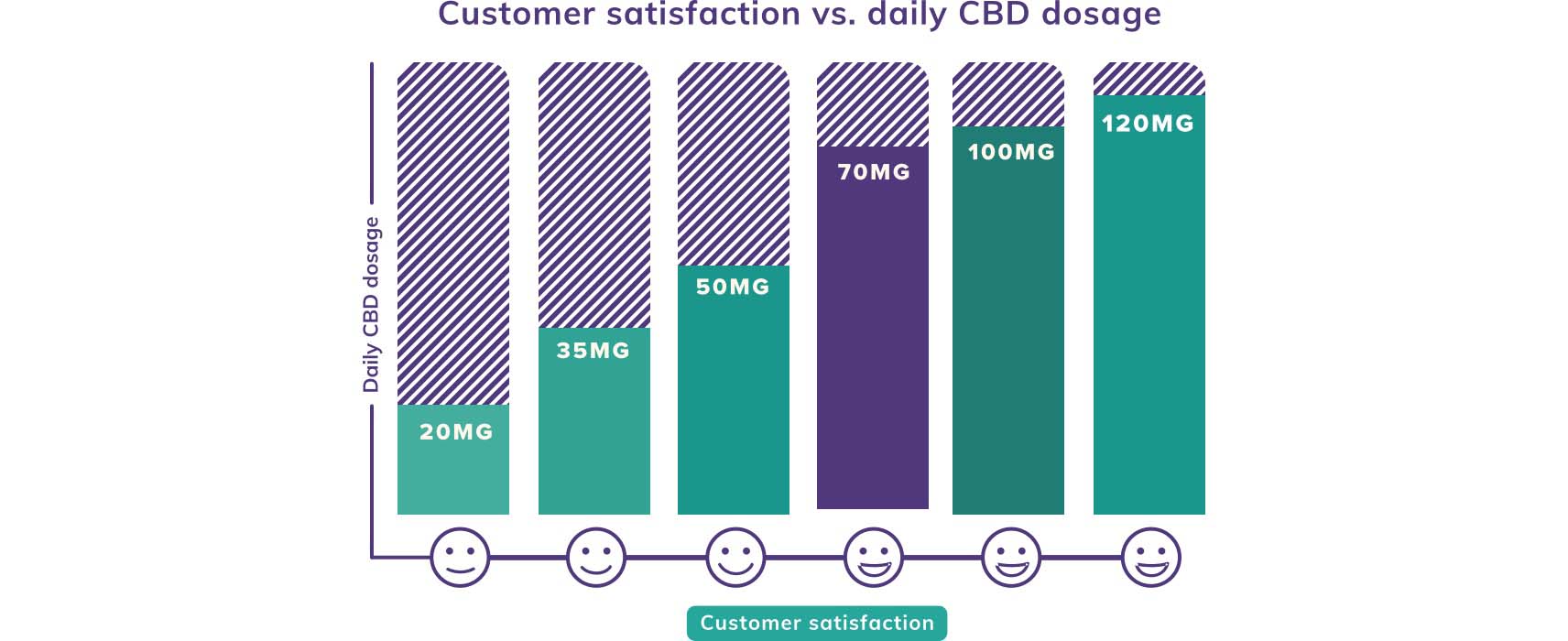
CBD oil can cause side effects such as high blood pressure, anxiety and depression. There is no standard way to test CBD oil products. This can make it difficult for consumers to know exactly what they contain. For these reasons, it is best to find a provider who submits its products for independent lab testing.
Cbd oil can cause side effects
CBD oil can lead to dryness in the mouth. CBD interacts in the mouth with the salivary receptors to block saliva production. People with dry mouth may find this effect beneficial. If you have dry or sensitive mouth, you need to drink more water.
Talking to your physician is the best thing to do to avoid these adverse effects. Before you try CBD oil, make sure to consult your doctor if you're already on prescription medication. CBD oil should not be taken if you're taking any other medications. This is especially important for those who are taking prescription drugs and have blood pressure issues. Other side effects include nausea or general sickiness.
Some reports claim CBD can damage the liver and cause it to develop cancerous tumors. However, this claim is not supported. CBD is known to alter liver enzyme levels. These enzymes help to kick-start various reactions within the body. This does not necessarily indicate liver cancer. It simply means that your liver is undergoing some trauma.
CBD oil may cause some sleepiness. You should decrease the dosage or stop taking CBD oil before going to bed. You should not take CBD oil with caffeine as it can increase your blood pressure. Sunlight can energize you and help you sleep better at night. The use of CBD oil to reduce anxiety is common. High doses of CBD oil can cause anxiety and irritability.
CBD may be able to help with depression according to some preliminary research. This is due to the fact that CBD may alter brain levels of serotonin. It can be beneficial for depression sufferers. It may also alter epilepsy symptoms, such as seizures.
Its impact on anxiety
CBD oil acts as an antidepressant and a natural way to increase brain serotonin levels. It has been shown to decrease anxiety without side effects similar to pharmaceutical anxiety medication. It interacts with the Endocannabinoid System receptors in the body. This system regulates sleep, pain, digestion, immunity, and many physiological activities.
One retrospective study showed that CBD was used for anxiety and insomnia in patients. Patients' monthly chart reviews documented changes in anxiety levels and quality of sleep. The effects of CBD on sleep quality were particularly evident in patients with Parkinson's Disease, which affects the motor functions and cognitive functions of your brain. Although the effects of CBD have not been fully studied, recent studies have indicated that it may help reduce snoring, a common symptom of anxiety.

CBD may reduce stress hormone cortisol in both animals as well as humans, according to studies. Chronic inflammation is more common when cortisol levels are high. CBD could also be a sedative that reduces cortisol release. The study also found that moderate CBD oil intake decreased the levels of cortisol, which in turn reduced anxiety levels and promoted sleep.
There are many questions about CBD oil's ability to reduce anxiety. But, research has shown that it is worth exploring. The CBD oil comes from a natural source and is not harmful to the body. CBD oil is a natural remedy for anxiety and pain relief.
Its effect on depression
Evidence is growing that CBD oil can be used to treat depression. Although animal studies have been promising, more clinical trials are needed to confirm that CBD oil can be used to treat depression. It is best to consult your doctor before you start using CBD oil to treat depression. Not to mention, CBD may cause side effects that can be worsened by antidepressants.
CBD oil has been shown to increase the levels of a neurotransmitter linked with anxiety and depression. It is specifically active on 5-HT1A nerve receptors that are found in the brain. These receptors are involved in regulating mood and behavior. CBD has been shown to increase GABA's activity in the brain. GABA reduces electrical activity which reverses the stress response.
CBD interacts directly with the brain's serotonin receptors, as evidenced by research on CBD. Serotonin plays a vital role in mood regulation and happiness. As such, keeping serotonin levels in balance is a key therapy for depression. Research is still needed to confirm that CBD can influence serotonin receptors in brain. These receptors have been shown to be associated with lower levels in depression in both humans and animal models.
Depression is a serious illness that can have devastating consequences. Statistics show that around 264 million people suffer from depression. Although many drugs can be used to treat depressive symptoms, there are some that have severe side effects.
Its effect on high blood pressure
CBD oil is recommended for high blood pressure. People with hypertension will find CBD oil a good option due to its safety profile. Before using CBD oil, consult with your doctor. If needed, they can adjust your blood-pressure medication.
There are many causes of high blood pressure. You can also benefit from a diet high-in fruits and veggies. Managing your weight and exercising regularly are also important. Learn how to manage your stress to lower your blood pressure.
There are several different forms of CBD oil available on the market. Most effective forms of CBD oil are either tinctures or oils. It has a higher bioavailability, which means that it's absorbed faster. You can also choose a sublingual form, which delivers CBD to your whole body. CBD products do not come with the same regulatory status as prescription drugs. Therefore, it is important to choose carefully. It is important to choose a product that meets specific requirements.
CBD offers many benefits. CBD reduces anxiety and improves focus. Many studies have shown CBD can lower blood pressure and reduce hypertension symptoms. It lowers your risk of getting stroke. Further research is needed in order to fully comprehend the effects of CBD on heart disease.

CBD oil is an excellent treatment for people suffering from high blood pressure. However, it should not be considered a miracle cure. It should be used in conjunction with lifestyle changes and a healthy diet. Avoiding tobacco and alcohol intake and engaging in regular physical activity are the best ways to safely manage high blood pressure.
Its impact on cancer
CBD oil has been proven to help improve the survival rate for cancer. This happens by changing the expression of several CYP proteins. CBD could interact with medication that is metabolized by your liver. It is unknown what the mechanism of CBD's actions are.
Research has been done on the impact of CBD oil on various types and types of cancer. The CBD oils were diluted in DMSO. The CBD oils had a significant effect on three cell lines in vitro. The viability of two NSCLC cell line H460/SW480 was reduced by CBD oil, as well as invasion. The CBD-treated cells showed a significantly lower rate tumor invasion than the A549 cells.
CBD also inhibits EGF/EGFR pathways and inhibits phalloidin. Both proteins are critical for the invasion tumor cells. These effects are similar to those seen in lung cancer. CBD inhibits the production a variety of proteins, including TIMP-1, that are critical for the development of cancer.
Although further research is needed in order to understand the exact role CBD plays in cancer treatment, it is clear CBD can help patients with symptoms and improve their quality-of-life. As a side effect to chemotherapy, many cancer patients experience nausea and vomiting. This can cause poor appetite and weight loss. These patients may benefit from CBD oil, which helps them manage their symptoms as they go through chemotherapy.
Study after study on CBD oil's effects on cancer found that CBD oil has a combination of THC and CBD. These studies suggest that CBD may increase the potency of conventional cancer treatments. Also, in both animal models as well as test tubes, CBD has been shown not to increase tumor growth. Although research on cancer remains incomplete, scientists are positive about CBD's potential benefits and optimistic about its potential use to treat it.
FAQ
What does CBD's price vary in different states?
Prices for CBD products can vary depending on where you live. In fact, prices can differ by more than ten times!
In general, prices increase the further north you go. In Alaska, CBD is $35 per gram on average, while it costs $200 in Hawaii.
This trend is continuing across the country. The prices range from $5 to more than $2,500 per gram.
This is why?
Prices vary because of different levels of regulation. Some states require that CBD products have very low levels of THC (the psychoactive part of marijuana). Other states don't care what level of THC is present.
Because of this, some companies choose to sell their products in one state and then ship them to another state.
How much CBD should I use?
It all depends on the product you're purchasing.
The majority of CBD oils are available in strengths between 100mg and 1,000mg per bottle.
Some companies make CBD products with specific dosages, such as 25mg, 50mg, 75mg, and 100mg.
Charlotte's Web is an example of a company that makes CBD products with exact amounts of CBD and other cannabinoids.
Start with a low dosage if you are unsure if CBD is right for you.
You can always go higher later.
Is there a CBD industry that is growing?
The answer is yes As legalization spreads throughout North America, this growth is expected continue. Canada is the only country that has legalized recreational use of cannabis. Many states have also passed medical marijuana laws.
This trend is expected to continue for at most another decade, as more states pass legislation that allows access to medical marijuana.
It is also economically sensible to legalize marijuana. As well as providing a lucrative alternative market for farmers, there are many other benefits to legalizing pot.
It could be used to reduce crime rates and the availability illegal drugs. It could also be a source for tax revenue.
As more people turn to legal weed, they may also choose to consume less alcohol. This would lead to fewer hangovers as well as lower health care costs.
Chronic pain sufferers may find that marijuana can actually improve their quality of life. Many believe THC, the active component in marijuana, is responsible for relieving symptoms like muscle spasms or nausea that can be caused by chemotherapy.
It is possible that marijuana could be used to treat mental disorders such as anxiety or depression. According to some studies, marijuana can be used to treat schizophrenia.
Even though the CBD sector looks bright, there are still many challenges.
Is there evidence that CBD reduces anxiety?
CBD oil is effective for treating anxiety because it interacts with certain receptors in the brain called CB1 and CB2. The mood and stress responses are controlled by the endocannabinoid system.
CB1 receptor is activated when our bodies feel anxious. This receptor triggers the amygdala to activate, which is responsible in emotional processing.
When the CB1 receptor gets blocked, the amygdala can't process emotions. As a result, people who take CBD experience fewer negative feelings.
In 2017, a study showed that CBD can reduce anxiety in people with social phobia. Another study concluded that CBD had a positive effect on symptoms of PTSD.
An 2018 review found that CBD is anxiolytic and can help with generalized anxiety disorder.
Another study indicated that CBD might help reduce panic attacks.
However, multiple studies have shown that CBD does increase anxiety in mice.
According to the researchers, this discrepancy between animal and human data may be due in part to differences in CBD's effects on humans and animals.
There are no long-term safety studies available for CBD. Most experts agree that CBD can be safely used when it is directed.
What is the future of the CBD industry?
The future looks bright for CBD. It's easy for people to get on board with this sector. With CBD products making up over $1Billion worldwide, it's easy for people to see why this market has grown exponentially.
In fact, according to Statista, global sales for cannabidiol (CBD) were expected to reach $22.4 billion in 2019. That's almost 200% more than in 2018!
A compound annual growth rate (CAGR) of 22.5% is predicted for the CBD market, which will translate into nearly $6.8 Billion in revenue by 2022.
This is good news for both companies that want to enter the CBD market and those who are already in this sector. We must remember that the CBD market still has a lot of work ahead.
Can I use CBD during pregnancy?
It is not clear if CBD is safe for use during pregnancy.
However, CBD does not appear to be a danger to the baby based upon the limited information.
It's important to note that CBD should not be taken by pregnant women unless recommended by their doctor.
In fact, the Food and Drug Administration recently issued a warning about potential risks associated with taking CBD while pregnant.
FDA stated that there was evidence that marijuana use during pregnancy might increase the risk for miscarriage.
The agency added that more research is needed before a firm conclusion can be drawn.
Statistics
- A recent study [161] also found that in vitro CBD treatment (i.e., ≤ 2 h exposure to 10 μM) induced ~40% vasorelaxation in isolated (pre-constricted) (ncbi.nlm.nih.gov)
- CBD seems unlikely to directly influence sleep in healthy humans [115] (and maybe “sleep-promoting” in those with certain comorbid conditions) (ncbi.nlm.nih.gov)
- however, one study also found that these effects were virtually abolished when the original media (a nutrient broth agar) was replaced with one containing 5% blood (increasing the minimum concentration to ~160 μM CBD) [179]. (ncbi.nlm.nih.gov)
- The use of these products is likely to become even more widespread if the World Health Organization's recommendation that CBD no longer is scheduled in the international drug control conventions is adopted by the United Nations member states [201]. (ncbi.nlm.nih.gov)
- While the primary injury may not be treatable, interventions that attenuate secondary sequelae are likely to be of benefit [203].Only one study (ncbi.nlm.nih.gov)
External Links
How To
What are the major issues facing the CBD industry in general?
The current market for CBD products is growing at an incredible rate. However, this market is still full of challenges for businesses that want to expand. These include low consumer awareness, high entry costs, limited capital access, regulatory uncertainty, and lack of consumer awareness.
Many people don't know much about CBD or how it works. They are unable to make an informed decision about buying CBD products.
Most CBD companies rely heavily upon word-of mouth marketing. This is expensive because it requires paying for advertising and hiring staff to promote their brand.
High production costs are another problem facing new entrants in the CBD industry. The raw materials needed to create CBD products are quite expensive. For example, hemp needs to be grown in specific climates and soil types before it can be processed into CBD oil.
Grow enough hemp to produce CBD oil requires approximately $1,000 per annum. Because of this, many small farmers are unable to afford to grow enough hemp for CBD oil.
A lack of capital access is another problem that CBD market newcomers face. Banks are often discouraged from helping people start businesses because of the stigma that surrounds the industry.
Last but not least, there is regulatory uncertainty regarding the sale and distribution of CBD products. There are currently not clear guidelines as to how CBD products should marketing.
Some states have passed legislation restricting the sale of CBD products, but this has yet to become national policy.
So far, only two states - Maine and Nevada - have legalized recreational marijuana.
Massachusetts and Michigan have considered similar measures.
These changes could result in increased competition between CBD manufacturer.
Many entrepreneurs prefer to work at home over starting a business.